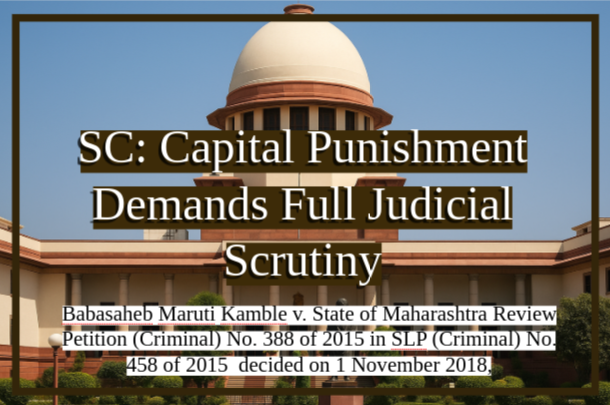SCOI Clarifies Scope of Contempt in Delayed Payment of Service Dues
- M.R Mishra

- Aug 20, 2025
- 2 min read
The Supreme Court’s decision in this case addresses a scenario all too familiar to many bank employees and pensioners across India: delayed disbursal of service dues despite clear judicial orders.
The late A.K. Jayaprakash’s legal battle, spanning decades and culminating in this contempt petition, offers significant judicial guidance on what constitutes “wilful disobedience” for civil contempt, as well as the remedial limits of contempt jurisdiction.
What's The Matter?
A.K. Jayaprakash, once a Manager with Nedungadi Bank Ltd., was dismissed in 1985 over alleged irregularities in loan-related actions. Jayaprakash challenged his dismissal under the Tamil Nadu Shops and Establishment Act, 1947, ultimately being reinstated by the Deputy Commissioner of Labour.
After multiple layers of litigation including a remand by the Madras High Court, partial restriction of back wages, and failed appeals by the bank (now merged with Punjab National Bank) up to the Supreme Court a final order dated January 17, 2018, directed payment of all outstanding dues within three months.
Despite this, payment was significantly delayed. Only in 2019 were various components like back wages, gratuity, and provident fund released, and the issue of pension remained disputed and unaddressed.
Jayaprakash, having passed away in the interim, was represented by his legal heirs in the present contempt proceedings.
Legal Issues Before the Court
1. Does delay in compliance amount to wilful disobedience and contempt of court?
2. Can the petitioner, through contempt proceedings, seek additional relief (i.e., pensionary benefits), which was not expressly granted in the original order?
What Court Said?
The Court emphasized that for civil contempt under the Contempt of Courts Act, 1971, wilful or contumacious (intentional/scornful) breach is essential.
Referring to precedents like Ashok Paper Kamgar Union v. Dharam Godha and Rama Narang v. Ramesh Narang, the Court noted that contempt jurisdiction is primarily to safeguard the rule of law, not to act as a substitute for enforcement of individual rights or personal grievances.
While there was an admitted delay beyond the stipulated three months, the Bank offered an explanation: administrative difficulties due to merger, and challenges in retrieving legacy records.
The Court found no evidence of “wilful” non-compliance or deliberate defiance on the Bank’s part a necessary ingredient for contempt.
On pension entitlement, the Court was clear: since neither the Supreme Court nor any previous court had expressly ordered payment of pension or pensionary benefits, and the petitioner himself did not raise this claim previously, contempt proceedings could not be used as a “back door” to seek new substantive reliefs.
Jhareswar Prasad Paul v. Tarak Nath Ganguly was cited for the point that contempt cannot substitute for proper adjudication of unaddressed claims.
This judgment delicately balances the enforcement of judicial authority with the realities of large-scale institutional administration. While rebuking the delay, the Supreme Court has set an important precedent: contempt jurisdiction is exceptional, not an alternate enforcement or claims mechanism.
Case Citation: A.K.JAYAPRAKASH VS. S.S. MALLIKARJUNA RAO - CONMT.PET.(C) No. 1002-1003/2023 in C.A. No. 6732-6733/2009 - Diary Number 23642 / 2021 - 19-Aug-2025







Comments